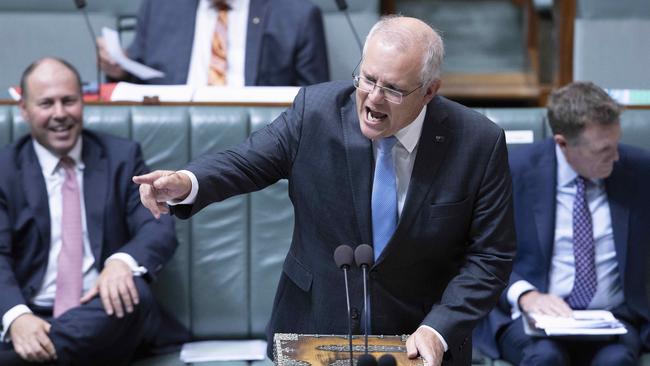
Only Malcolm Turnbull in 2016 was better placed based on the primary vote, two-party preferred, voter satisfaction with the prime minister, voter satisfaction with the opposition leader and choice of better prime minister.
Morrison’s standing is better than John Howard’s was at the start of each of his election years, including being twice as good as Howard’s position when he started his 2007 election losing year.
But as good as this week’s Newspoll survey results look for Morrison and the Coalition, they are no guarantee of victory as so many of his backbenchers seem to assume.
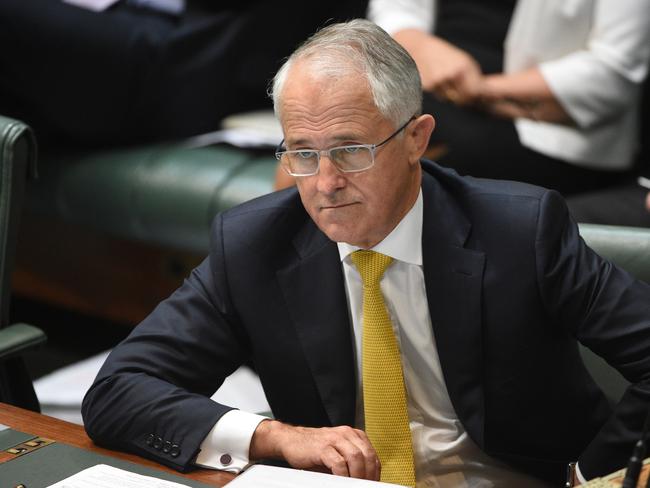
Some of the dire positions prime ministers were in at the beginning of their election year, and the best position of Turnbull in 2016, were overturned by events, political miscalculations and poor campaigns.
Even compared to 2004 — the parallel year for the Howard government seeking a fourth term after eight years in power with an election possible late in the year — the Morrison government is in a better position than John Howard was then mainly because of the low personal support for Anthony Albanese.
In the first Newspoll of 2004, the Coalition’s figures were almost the same as its numbers in the first Newspoll of 2021.
The two-party preferred support was exactly the same, 50-50, and the primary votes were similar with the Coalition on 41 and Labor on 39 per cent in 2004.
The prime minister’s satisfaction with voters was high: positive net satisfaction of 17 for Howard and positive 30 for Morrison, and Howard and Morrison are well ahead on the preferred prime minister rating with a 20-point lead for Howard and 30-point lead for Morrison.
The big difference between 2004 and 2021 is that the raucous larrikin appeal of the new Labor leader Mark Latham, with an appeal to workers and preparedness to attack entrenched political privileges, such as MPs’ generous superannuation, had rattled the Coalition.
As opposition leader, Latham had a net positive voter satisfaction rating of plus 31 per cent at the beginning of 2004 while Albanese has a net rating of negative 2.
But, again despite coming close to Howard on preferred prime minister during the year, a Coalition campaign of “who do you trust” undermined Latham’s support as his brash style started to turn people off.
A notorious meeting in the last weeks of the election campaign when the much younger, bigger and stronger Latham aggressively shook the hand of the older and smaller Howard in front of the television camera was credited as the final blow for Labor’s chances, despite it having better polling than now.
The person in the worst position at the start of an election year, Paul Keating in 1993, went on to win against John Hewson and his sales tax proposal from opposition, while the best-placed, Malcolm Turnbull in 2016 campaigned poorly, lost 14 seats of the majority Tony Abbott won in 2013, and went within a single seat of losing government.
The second-worst position of a prime minister going into an election year was John Howard in 2007 when he lost to Kevin Rudd. Morrison’s position is two times better than Howard’s position at the start of 2007.
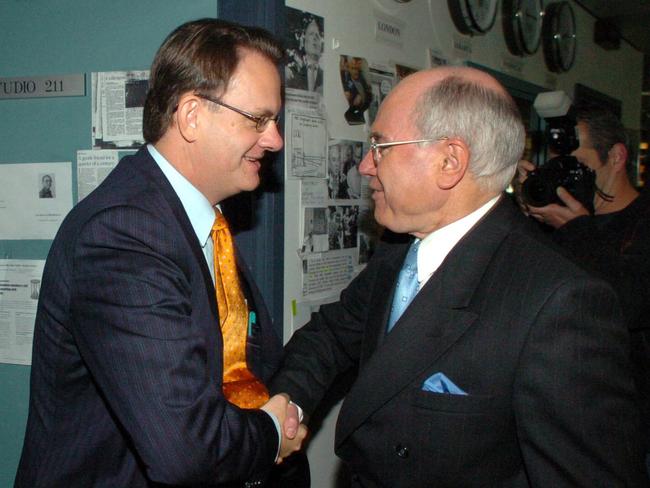
It is also doubly better than Howard’s standing at the beginning of 1998 — the year of the GST election — which Howard won but with a loss of 22 seats.
The Coalition’s current standing in the first Newspoll of 2021 is more than double that of Paul Keating in 1993 when he was written off as prime minister and Hewson was said to be running an unlosable election.
Josh Frydenberg read the pre-poll predictions of 1993 to his Liberal colleagues to remind them of unlosable elections. The Treasurer also cited some notoriously wrong predictions about the Coalition’s inevitable “loss” in 2019 — the year of Morrison’s “miracle win” over Bill Shorten.
Morrison is also in a better position than Howard was at the start of 2001. The Coalition’s primary support in Newspoll was at its lowest, there was strong anti-GST reaction and there were leadership divisions.
But by the second half of 2001, Howard had steadied the polls with budget and GST concessions and then roared towards the election on the back of hard border policies and ultimately the terror fears after the September 11 attacks on New York and Washington DC.
In 2010, Kevin Rudd had started the election year in a worse position than Morrison is in now but not as bad as Keating and Howard in previous years.
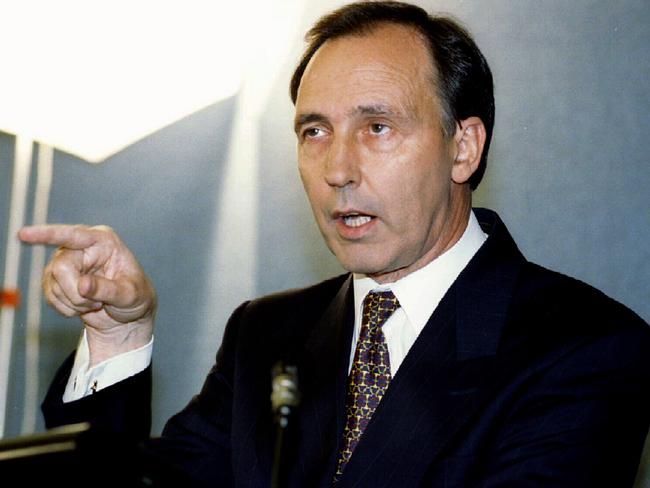
Rudd was removed between the first Newspoll of the year and the election and Julia Gillard lost Labor’s majority and became a minority government.
Gillard began the next election year, 2013, in a worse position than Rudd had in 2010, and was removed before the election, which Rudd lost to Abbott.
Unlike some of his colleagues, Morrison is not misled by early polling in a potential election year because politics, events and campaign failures can lead to results completely contrary to the polls, expectations and predictions.
The results of the 1993, 1998, 2001, 2004, 2010 and 2019 elections — half the elections held since 1987 — were not predictable based on the first Newspoll surveys of the election year.
Liberal MPs who are urging a September-October election based on this week’s positive Newspoll figures, and commentators declaring Morrison a certainty to be re-elected, should look at previous expectations and previous experience.


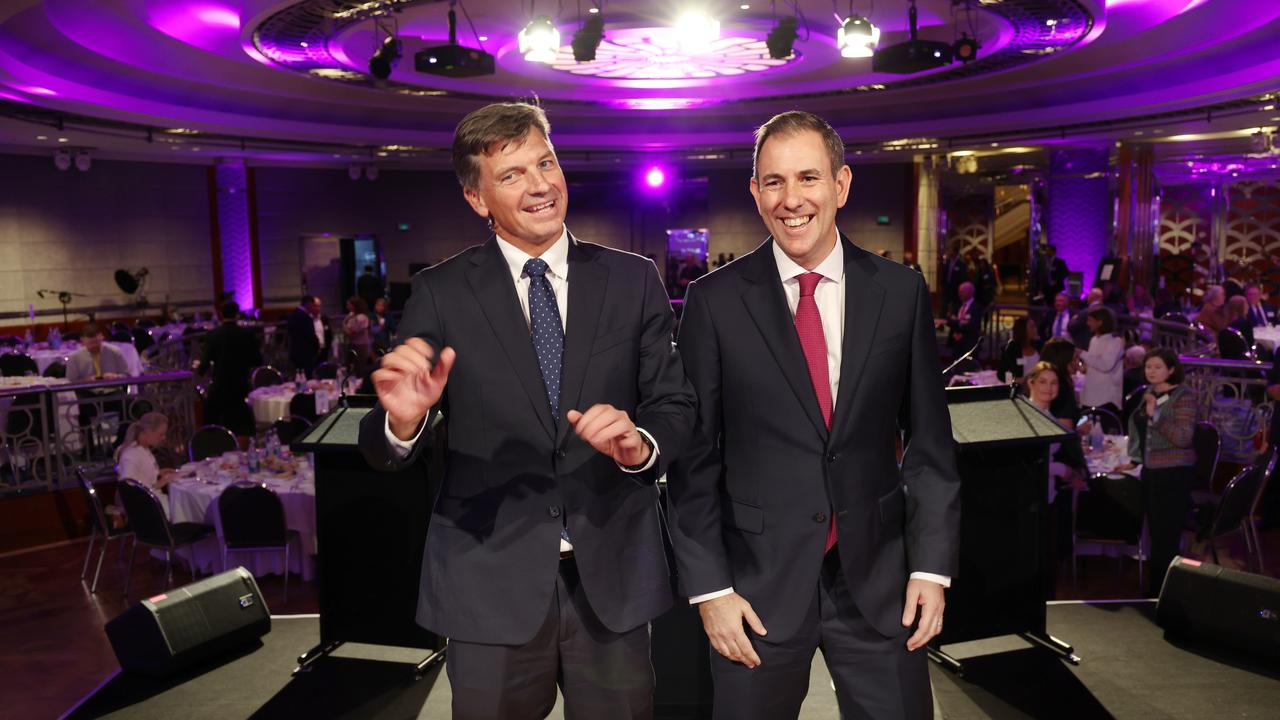

If Scott Morrison decides to make 2021 an election year, he is in the second best position of any prime minister at the start of an election year since 1987 when Newspoll surveys were first taken.